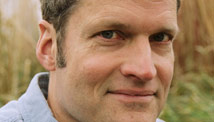
曾出版《美國聖經》和《美國耶穌》等宗教書籍的美國波士頓大學宗教系教授斯蒂芬‧普羅特勞(Stephen
Prothero)成為西方學者中首位就藏人自焚問題公開批評達賴喇嘛的人。
近日他在美國有線電視新聞網自己開設的博客中批評達賴喇嘛,認為他應該譴責藏人自焚。他說:「我知道批評被很多佛教徒尊為菩薩的諾貝爾和平獎得主達賴喇嘛是一種失策,但在這種情況下,他應該被批評。為什麼不創造某種印象『說殺人是錯的?為什麼不利用他巨大的道德和精神資源來譴責這種個人的犧牲呢?』」
他認為,儘管「佛教的自焚傳統至少可以追溯到西元四世紀,但佛教也有著強烈的同情心,在這次事件中,同情心在哪裡?」他最後呼籲「諾貝爾和平獎得主達賴喇嘛在危機如此嚴重之時,應該像個愛好和平的人一樣行動了」。
斯蒂芬‧普羅特勞的宗教評論經常出現美國各大媒體,如全國廣播公司、哥倫比亞廣播公司、《紐約時報》雜誌、《華盛頓郵報》和《華爾街日報》等。
以上是法國國際廣播電臺特約記者潘衛發來的報導
___________________________________________________________
〔英文全文〕http://religion.blogs.cnn.com/2012/07/12/my-take-dalai-lama-should-condemn-tibetan-self-immolations/
My Take: Dalai Lama should condemn Tibetan self-immolations
 Editor's Note: Stephen Prothero, a Boston University religion scholar and author of "The American Bible: How Our Words Unite, Divide, and Define a Nation," is a regular CNN Belief Blog contributor.
Editor's Note: Stephen Prothero, a Boston University religion scholar and author of "The American Bible: How Our Words Unite, Divide, and Define a Nation," is a regular CNN Belief Blog contributor.
By Stephen Prothero, Special to CNN
When the Vietnamese monk Thich Quang Duc immolated himself in Saigon in 1963 to protest the persecution of Buddhists by the South Vietnamese government of Ngo Dinh Diem, the world took notice. Malcolm Browne’s photograph of the monk becoming a martyr won the Pulitzer Prize, and Diem's Roman Catholic regime fell before the year’s end.
Today, Tibet is witnessing an epidemic of self-immolations. In fact, since March 16, 2011, more than 40 Tibetans have followed Thich Quang Duc’s lead, setting themselves on fire to protest the Chinese occupation of Tibet.
Westerners react with revulsion to sati, the Hindu practice of widow-burning outlawed by the British in 1829, and of course to Islamist suicide bombers. The New Atheists are right to protest all this killing in the name of God (or the Buddha) – the way believers both prompt violence and justify it in the name of some higher good.
So where are the protests against these Tibetan protesters?
When asked about the recent spate of self-immolations in Tibet, the Dalai Lama has offered the response of no response. In a July 9 interview, the spiritual leader of the Tibetan people said he wanted “to remain neutral,” telling The Hindu:
This is a very, very delicate political issue. Now, the reality is that if I say something positive, then the Chinese immediately blame me. If I say something negative, then the family members of those people feel very sad. They sacrificed their own life. It is not easy. So I do not want to create some kind of impression that this is wrong. So the best thing is to remain neutral.
I know it is impolitic to criticize the Dalai Lama, a Nobel Peace Prize winner who is revered as a bodhisattva by many Buddhists. But he deserves criticism in this case. Why not "create some kind of impression" that killing is wrong? Why not use his vast storehouse of moral and spiritual capital to denounce this ritual of human sacrifice?
If the Dalai Lama were to speak out unequivocally against these deaths, they would surely stop. So in a very real sense, their blood is on his hands. But the bad karma the Dalai Lama is accruing here extends far beyond Tibet and these particular protesters.
In an important article on suicide in the Boston Globe, Jennifer Michael Hecht has noted that suicides beget suicides. “One of the best predictors of suicide is knowing a suicide,” she writes. “That means that every suicide may be a delayed homicide.”
And so it goes with self-immolations. The suicide by fire of Tunisian street vendor Mohamed Bouazizi is widely seen as a key catalyst of the Tunisian revolution and the wider Arab Spring. Less well known is the fact that over a hundred Tunisians later set themselves on fire in copycat incidents.
I understand that there is a tradition of self-immolation in Buddhism dating back at least to the fourth century. But there is also a strong ethic of compassion. So where is the compassion here?
The Dalai Lama isn’t just a Nobel Peace Prize winner. He is also a man of peace. It is time in this crisis that he started to act like one.
The opinions expressed in this commentary are solely those of Stephen Prothero.
0 回應留言:
張貼留言
親愛的朋友:歡迎留下足跡。非Google帳號留言,請選擇:「發表留言的身分」→「名稱/網址」→「張貼留言」。